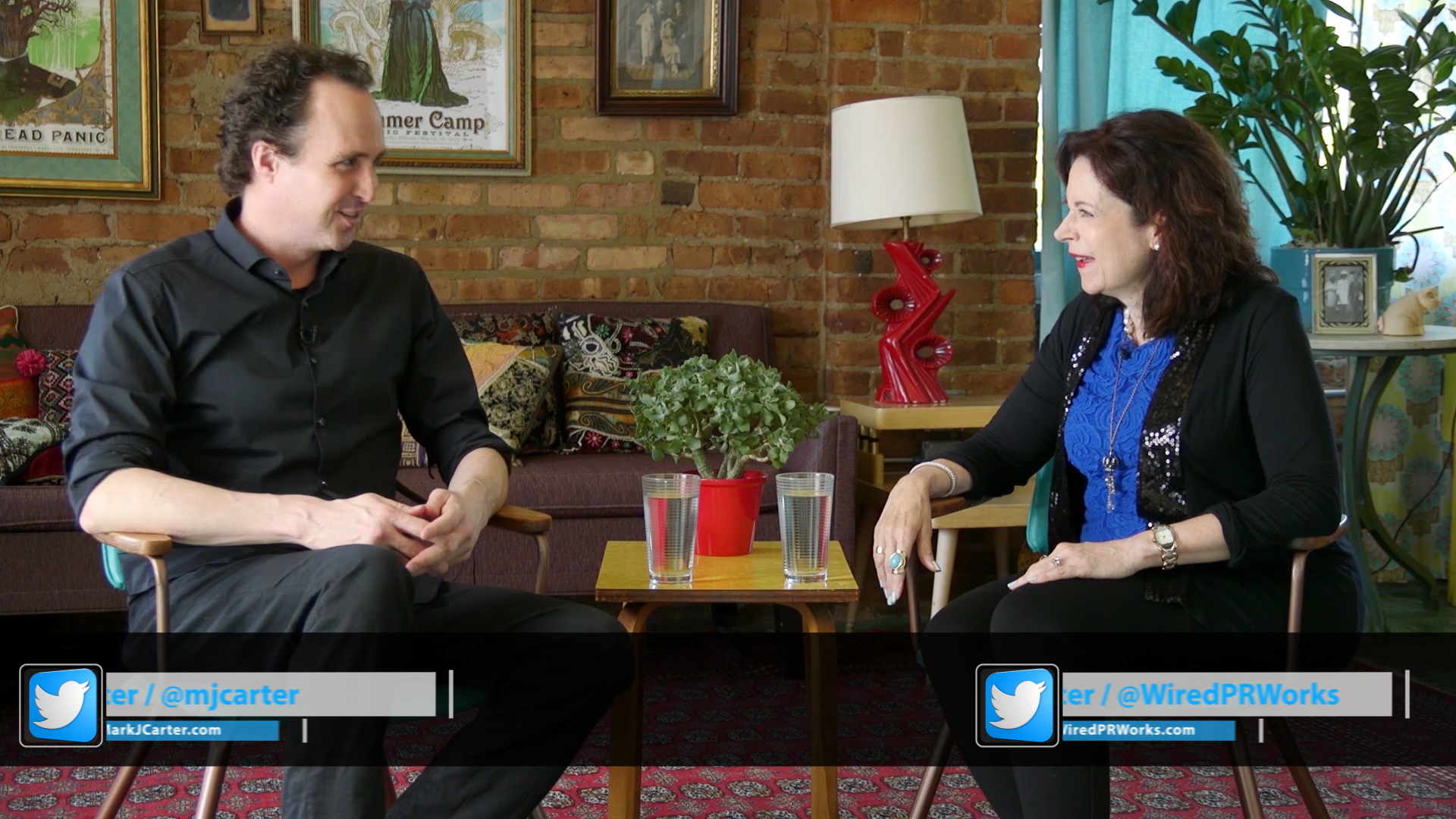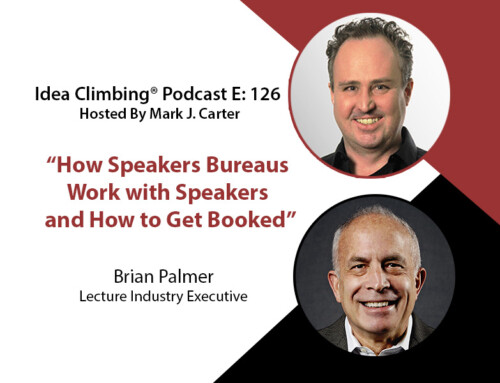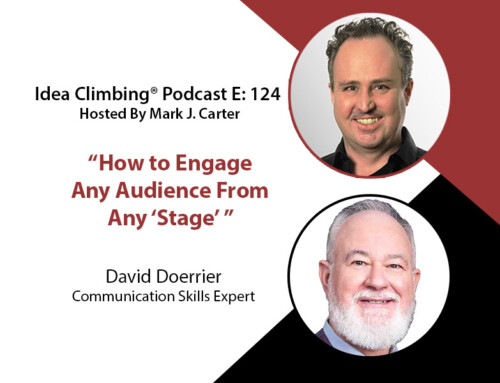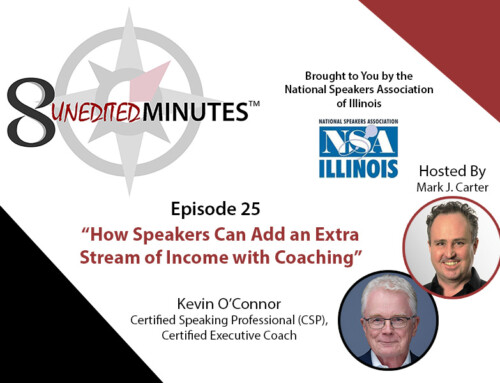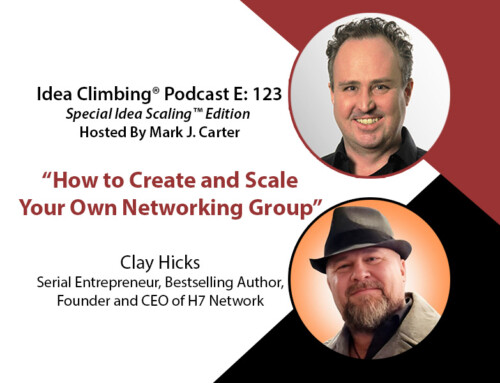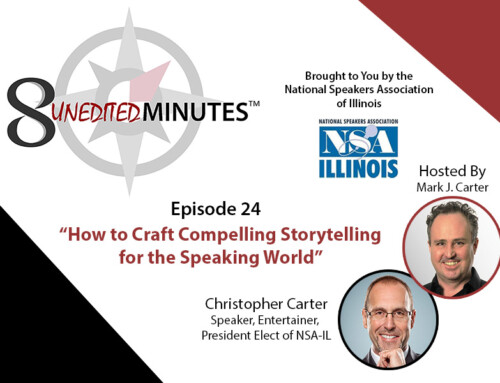In a recent study, nearly 70% of people surveyed who present regularly agreed that presentations are critical to their success at work—and 75% of the presenters surveyed indicated that they would like to improve their presentation skills. So – Where can you go to learn more about speaking professionally? A professional speaker!
I discuss how to go about that with Barbara Rozgonyi, founder of WiredPRWorks.
The most important point to start out your journey? Connect with a topic that you’re PASSIONATE about! Not just “How do I make money speaking?” but “How can I get better at speaking about leadership for millennials” or another niche subject that you love. Sharing purpose and passion goes a LONG way in the mentoring world.
How can you create that first mentoring experience?
- Go see someone who’s speaking about what you’re interested in speaking about. Then follow them online and keep track of everything that they do. Barbara calls this a “Backstage Mentor”; it’s kind of virtual mentoring. You might not ever meet one on one BUT you can still learn a lot from them.
- Go to your local National Speakers’ Association (NSA) events. Rub shoulders with people who specialize in speaking about a variety of topics.
- Go to NSA websites and peruse their membership. What they speak about is listed. When you find something you’re interested in reach out to them.
Creating Mentoring Conversations
The top tip from Barbara about creating the all important first conversation with someone you admire? Have your questions ready BEFORE you connect!
Consider this: You can reach out and ask for 15 minutes of their time and ask “How do I get started in the speaking industry?”. That’s pretty vague and it can’t be covered in depth in 15 minutes. What if you asked questions such as “How do I get started designing my presentations?”, “How did you get your first clients?” or “How do you go about contacting meeting planners to get booked?”
Those are MUCH more focused questions and it shows that you took time to prepare which means you respect THEIR time. Respect goes a long way in the mentoring world also. This leads us to a fourth way to reach out:
- Go to NSA’s open Facebook group and ask questions in the group. You can also search to see if anybody else has already asked your question. You can also look in Quora and LinkedIn groups.
Creating Mentoring Relationships
Instead of thanking someone for that first call and saying good bye there are ways to keep in touch and build a deeper relationship. Barbara suggests that you follow that person on social media. Simply liking their LinkedIn posts, retweeting them on Twitter or commenting on their blog lets them know that you’re paying attention.
Keep in mind that really successful speakers are really busy people. It’s not that they don’t want to give you time, it’s just that their time is limited.
When you follow someone’s activity you know when they’ll be in your town. You can offer to meet for drinks or for coffee. It can get lonely on the road and in person conversations can be a welcomed invitation.
Setting Expectations
It’s important to let the other person know what you expect out of the mentoring relationship. Look at these two examples:
- “I’m looking for a mentor to teach me about XYZ in the speaking profession and have one phone call a month.”
- “I’m looking for a mentor to teach me about XYZ in the speaking profession and talk for 10-15 minutes a month”
Clarity helps the other person to say YES to your request.
Why Should People Become Mentors In The Speaking World?
So that you can give people the opportunity to get their message out. Most people have a story about that person that “gave them a break” and they want to give back. That’s why they WANT to give back, if you go about connecting with them the right way.
If you enjoyed this post check out another 8 Unedited Minutes interview: “How Mentees and Mentors Can Create Successful Mentoring Experiences”
You can get my book here: “Idea Climbing: How to Create a Support System for Your Next Big Idea”
